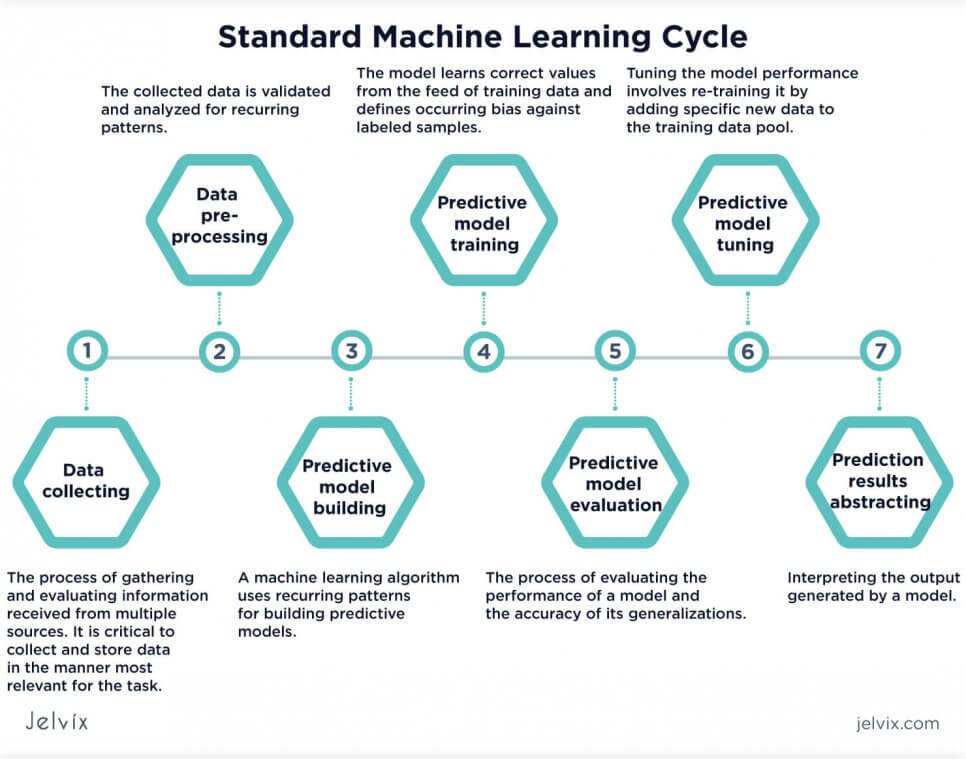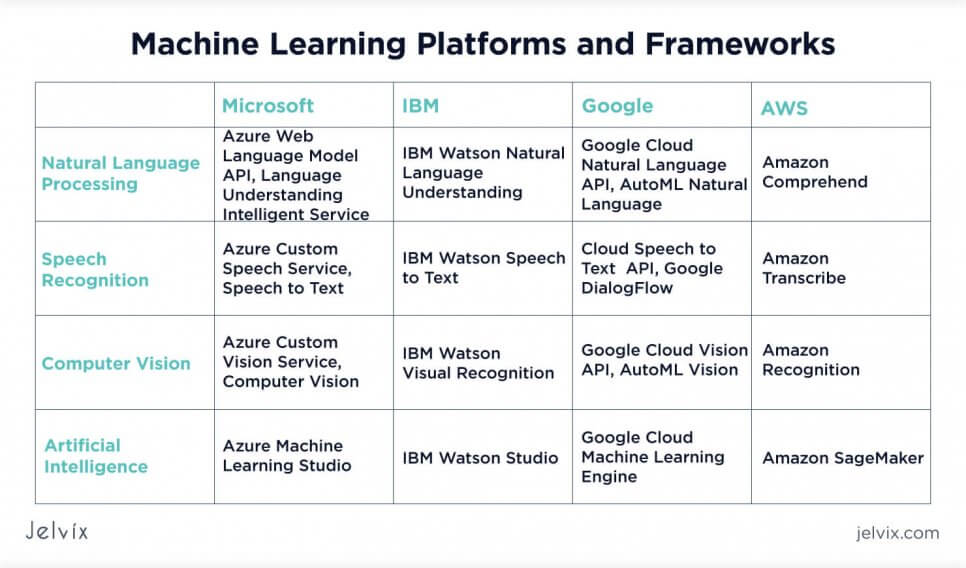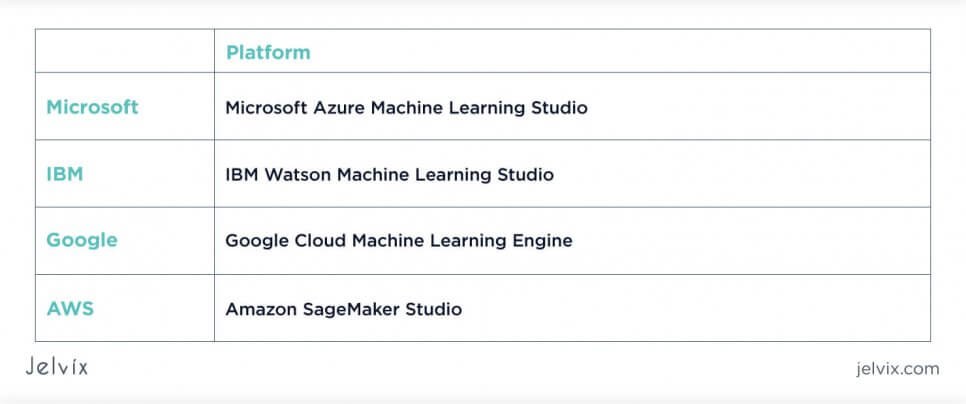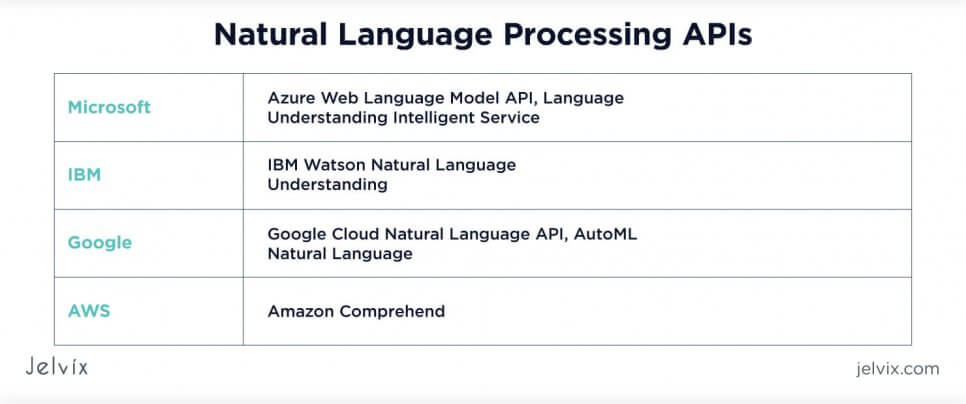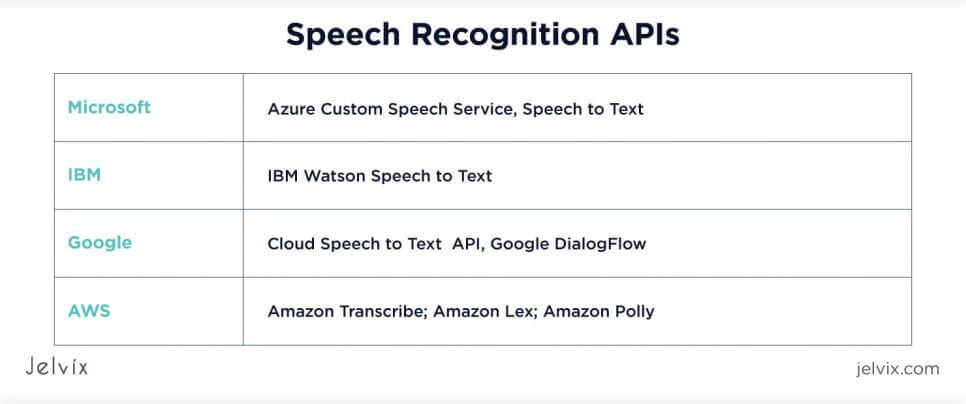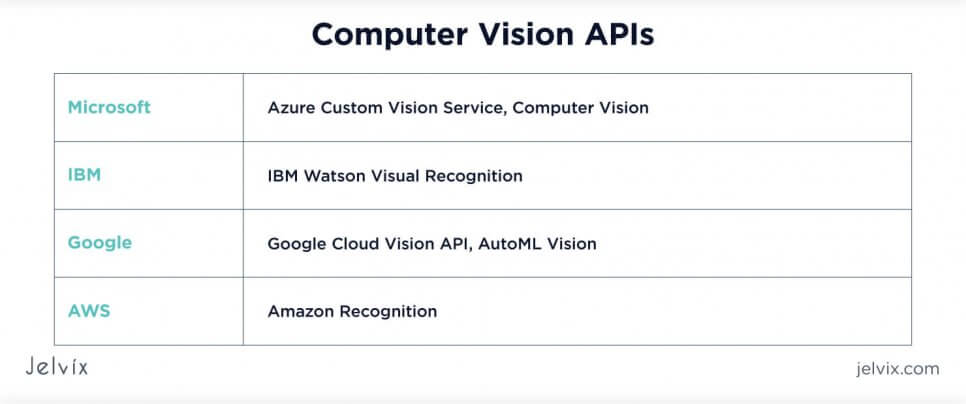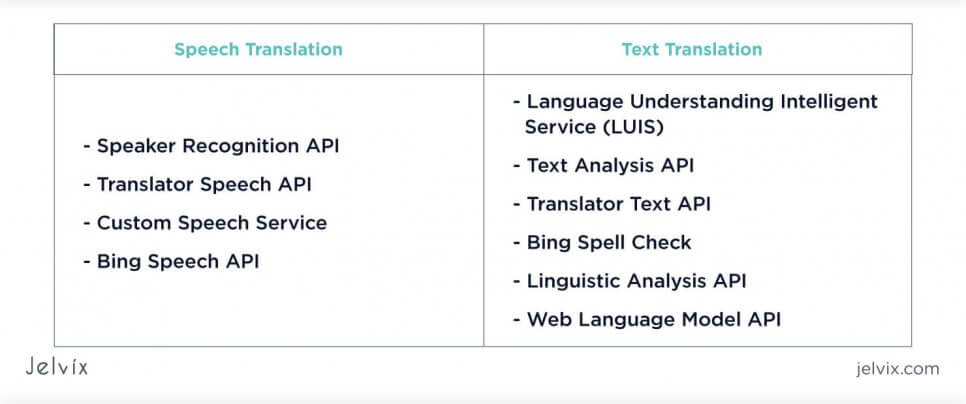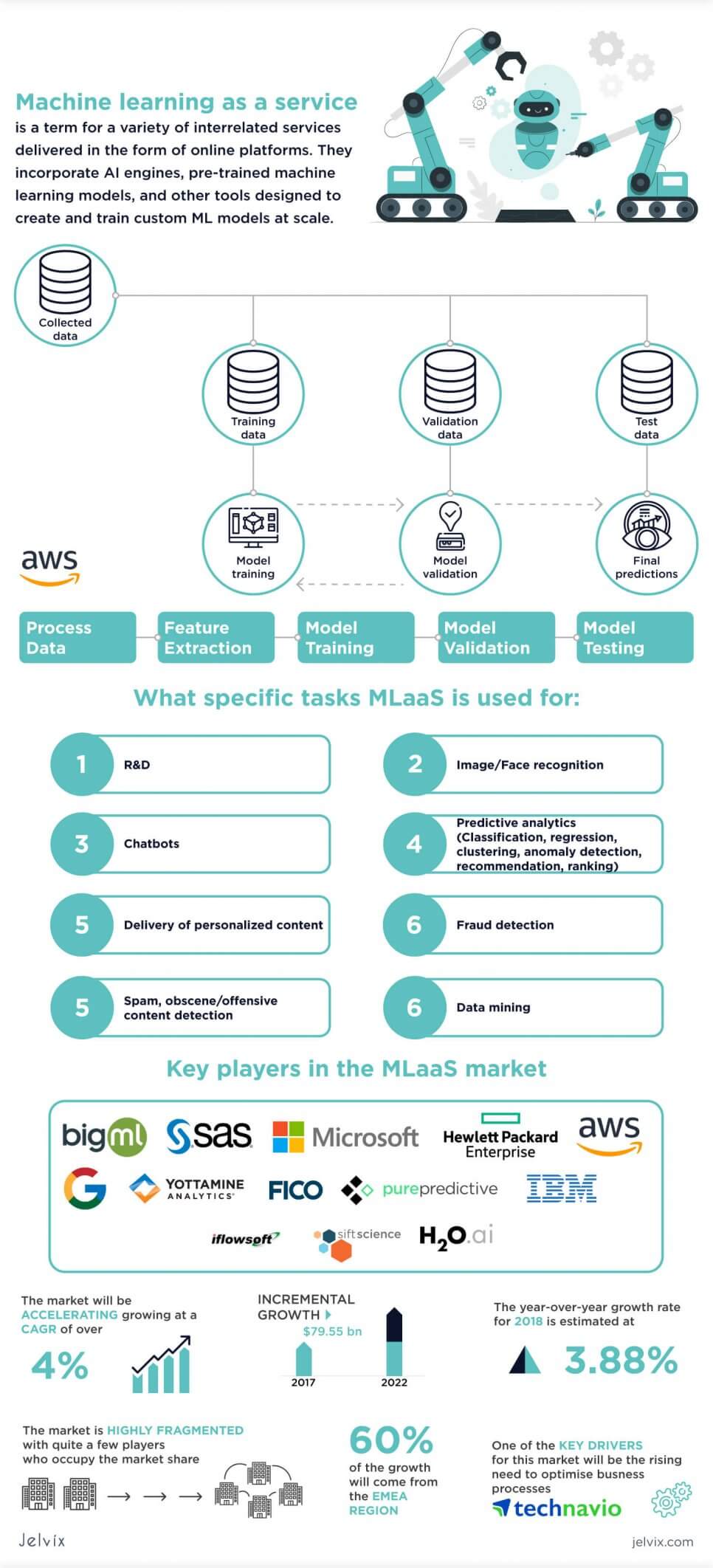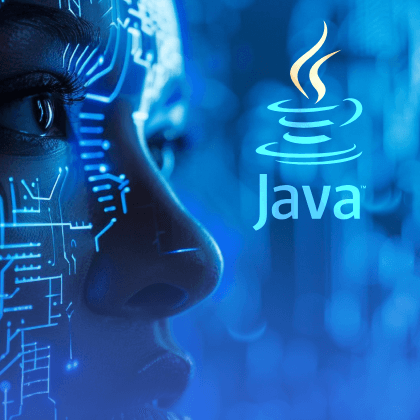A short while ago, machine learning (ML) seemed to dwell only in the labs of data scientists. During the past years, we have heard a lot about this emerging technology as a component of artificial intelligence. However, for a mass reader, machine learning still belongs more to science fiction than real life.
As is often the case, we missed the point when ML technology invaded our everyday life. Face recognition systems scan us in the streets. We communicate with intelligent human-like chatbots on the web. AI-powered fraud detectors protect our finance transactions. We use natural language processors when making voice input. And if we talk about machine learning implementations, there’s a lot more where that came from.
From costly and complicated lab experiments, machine learning developments became affordable and user-friendly services. Now, businesses see a competitive edge in being the first to adopt ML solutions.
A quick guide on Machine Learning as a Service (MLaaS)
WHAT: MLaaS is a fast-developing branch in the family of other cloud-based something-as-a-service. It is built upon machine learning technology, which teaches machines to identify pieces of specific information and learn independently from processing big volumes of data.
DELIVERED: Mostly by cloud service providers, with Microsoft, IBM, Google, and AWS leading the MLaaS race.
HOW: Through AI tools in the Cloud Computing environment. They allow machine learning teams to create predictive models driven by machine learning algorithms.
DIRECT USERS: Developers and data scientists
MAJOR APPLICATION AREAS: Marketing, Information Security, Fraud Prevention, Risk Analytics, Predictive Maintenance, Network Analytics, etc.
Standard Machine Learning cycle
MLaaS at a closer distance
Machine learning as a service is a generic term for a variety of interrelated services delivered through online platforms. They incorporate artificial intelligence engines, pre-trained machine learning models, and various ML tools designed to create and train custom ML models at scale.
Deployed in the cloud and delivered as a service, ML platforms are no longer costly and hard-to-maintain solutions as they used to be before.
Because MLaaS is based in the cloud environment, customers can enjoy multiple other cloud options like elastic storage and computational power.
Similar to other cloud services, MLaaS eliminates the pain of keeping an in-house machine learning team to dig deep into data science. Data pre-processing, model building, training and evaluation, and other processes, all run on the service provider’s side. They offer complimentary tools, including APIs, data visualization, predictive analytics, deep learning, natural language processing, etc.
Summarizing the above, MLaaS is a set of machine learning tools, algorithms, and ready-made configurable ML modules aimed to build working predictive models. Users can select and configure them to fit their specific needs.
Machine learning algorithms trace recurring patterns during data pre-processing. The traced patterns lay in the foundation of mathematical models. After extensive “training”, these models are capable of making predictions while receiving new data.
Machine learning is all about pattern recognition and probabilistic reasoning.
Algorithms Supporting MLaaS
- Convolutional Neural Network (CNN)
- Deep Neural Networks (DNN)
- Bayesian Networks
- Probabilistic Graphical Models
- Restricted Boltzmann machine (RBM)
- Pattern Recognition
- and others
What specific tasks MLaaS is used for
The application area of MLaaS is rapidly expanding. Nowadays, there is no industry where machine learning solutions would not open up a new perspective.
Below are a few specific areas where the revolutionizing impact of machine learning is most visible:
- R&D
- Image/Face recognition
- Chatbots
- Predictive analytics (classification, regression, clustering, anomaly detection, recommendation, ranking)
- Delivery of personalized content
- Fraud detection
- Spam, obscene/offensive content detection
- Data mining
Learn more about the difference between artificial intelligence vs machine learning vs deep learning and how they can be implemented.
Organizations that may benefit from MLaaS
Not only data scientists and developers who are interested in MLaaS are experimenting with AI-powered applications. Almost all organizations, regardless of type and size, could benefit from using ML technology. But before machine learning came as a service, the high cost and complexity of implementation had always been the common stoppers in adopting this technology.
With MLaaS on board, the organizations can integrate the power of predictive models without significant investment. The most obvious fields to gain from MLaaS are marketing and advertising. Follow further fraud detection, risk management, predictive maintenance, supply chain or inventory management, etc.
Telecom, retail and wholesale, financial, public, and healthcare service companies are among the early adopters.
According to Dresner’s research presented in Forbes publication, the Telecom industry is an absolute leader in its interest in machine learning solutions. FinTech, technology, and higher education industries are catching up.
MLaaS + Cloud Storage + Cloud Computing Capacity + Cloud Services Management = Competitive Edge
This formula reflects the opportunity for SMB organizations with limited resources to enjoy the gains of machine learning full way.
Key players in the MLaaS market
We found and listed below 13 ML providers, who have already made their names and are worth checking out. Some of them, like Microsoft, are influential world tech giants, while others are more flexible and specific. This is why we do not claim that only cloud giants deserve to be on your list.
- Microsoft Corporation
- IBM Corporation
- Google LLC
- SAS Institute Inc.
- Fair Isaac Corporation (FICO)
- Hewlett Packard Enterprise Company
- Yottamine Analytics LLC
- Amazon Web Services Inc.
- BigML Inc.
- Iflowsoft Solutions Inc.
- PurePredictive Inc.
- Sift Science Inc.
- H2O.ai Inc.
Microsoft, IBM, Google, and Amazon are most often named as Top MLaaS Providers.
Machine Learning platforms and frameworks
MLaaS: Microsoft, IBM, Google, and AWS Platforms
In the field of ML custom modeling, all four service providers offer equally competing solutions. All of them provide hi-end environments and tools to create, train, and deploy ML models faster, easier, and at a lower cost.
Microsoft Azure Machine Learning Studio
Azure Machine Learning services stand out primarily in Machine Learning Studio, a flexible multifaceted ML platform. Its strengths include innovative algorithms and a drag-and-drop GUI.
However, despite the availability of WYSIWYG controls, it takes significant time for the beginners to learn Azure Machine Learning Studio operation nuances.
Azure Machine Learning Studio supports about a hundred methods applied in predictive analytics.
Bot Service Framework is another toolset of Azure Machine Learning services that complements Azure ML Studio functionality. As it comes from the name, the designation of this framework is bot development. It includes five bot-building templates and an integrated development environment for bot development, testing, and deployment.
Bot Service Framework supports .NET and Node.JS suites used in building custom bots, from simple Q&A chatter to human-like virtual assistants. The framework allows custom bots to be deployed onto popular platforms, such as Slack, Telegram, Skype, Bing, Facebook Messenger, etc.
The Microsoft Azure Machine Learning Studio in its Basic Edition does not charge users, who have a Microsoft account. Users receive workspace, 10 GB of free storage, and free predictive services. Free services have limitations on their duration and several modules used. Basic Edition is designed for open source development by users with code-first experience.
The Enterprise Edition is available through various Azure subscription plans. Basic capabilities are enhanced with a drag-and-drop user interface, a variety of machine learning algorithms and templates, complete ML lifecycle management, and process security.
IBM Watson Machine Learning Studio
Watson Machine Learning Studio combines the power of IBM’s MLaaS functionality with innovative tools revolutionizing the machine learning development and management process.
Pre-trained models tooled for dynamical re-training are managed via the free IBM Watson OpenScale platform. Adding Cloud Pak suite of integrated solutions automates the deployment of AI use cases in production. A built-in configurable dashboard in Watson Machine Learning Studio facilitates the collaboration of teams within a single modeling space.
Watson Machine Learning Studio offers a variety of automation tools designed for data visualization, neural networks modeling, and integration of machine learning developments into cloud apps.
AutoAI provides less experienced users with an easy-to-use interface for data processing and model-building automation. Automation resolves three major data processing tasks:
- Binary Classification
- Multiclass Classification
- Regression
SPSS Modeler manipulates data, transforms data into statistical information, and trains models to operate statistical information. In contrast to the SPSS Modeler, the Neural Network Modeler is a graphical interface that transforms graphically designed neural network structures into code.
Google Cloud Machine Learning Engine
Similar to AWS, Google offers the full spectrum of machine learning services based upon its cloud platform. The Cloud Machine Learning Engine is a package of game-changing solutions and services in the machine learning world. Designed for mature users, it requires outstanding data science skills.
For new users, Google offers the Cloud AutoML platform. With its user-friendly interface and tools, AutoML simplifies the process of importing datasets, model training, and their further deployment on the web.
Cloud AutoML also offers access to a variety of ready-made solutions for model training, natural language processing, image, and video processing, etc. Needless to say, Cloud AutoML enjoys complete integration with Google’s ML services.
While Cloud AutoML facilitates the tasks for less mature users, the Cloud Learning Machine Engine extends the limits for data science experts. Armed with the TensorFlow machine learning framework and support of Google cloud infrastructure capability, developers and data scientists move their machine learning experiments to another level.
Amazon SageMaker Studio
Amazon SageMaker Studio is an integrated development environment (IDE) empowered and tooled for machine learning purposes. SageMaker’s features and templates allow developers and data scientists to create, train, and deploy high-quality machine learning models faster, easier, and at a lower cost.
Billing is per second for on-demand instances, storage, and computing resources, with no long-term commitments.
A series of underlying framework services like Amazon SageMaker Neo support Amazon SageMaker.
Amazon SageMaker provides an isolated hands-on environment for faster model building and deployment without the trouble of server handling. With the support of Jupiter Notebook, an open-source web application for interactive computing, Amazon SageMaker enhances its capability for machine learning modeling, data visualization, transformation, and simulation.
The Amazon Machine Learning offerings compliment SageMaker with many pre-integrated algorithms specially designed for use with extra-large datasets.
Examples of algorithms available in SageMaker
- Factorization machines
- XGBoost
- Image classification
- K-means
- Seq2seq
- Random Cut Forest
- DeepAR
- Neural topic model (NTM)
Just like other platforms presented here, Amazon SageMaker smoothly integrates with popular ML frameworks and libraries, such as TensorFlow, MXNet, Gluon, Keras, and Torch.
Natural Language Processing, speech recognition & computer vision APIs
All three categories are the common battlefield for the top MLaaS providers. Each of them has their own cloud solutions to bring to the table.
Natural Language Processing APIs
Speech recognition APIs
Computer vision APIs
AWS Machine Learning APIs
Among natural language processing APIs offered by AWS, Amazon Comprehend is an excellent service for users with no experience in machine learning. Capable of analyzing all sorts of text-containing sources, whether social media, analyst reports, or customer emails, it accurately identifies not only specific items but also the sentiment they are wrapped in.
Due to its unique algorithms of topic modeling, entity extraction, key phrase detection, and sentiment analysis, Amazon Comprehend provides valuable insights into the depths of customer experience.
To enhance its usability, Amazon Comprehend can be coupled with Amazon Translate – a multi-language translation API built upon neural networks to process texts in different languages.
AWS offers machine learning as a service in a variety of other task-specific APIs designed for text and speech processing. For instance, Amazon Lex is capable of recognizing both spoken and written texts. Amazon Transcribe is specially designed for speech-to-text conversion, while Amazon Polly converts text to speech.
Microsoft Azure Machine Learning APIs
Microsoft offers the most satisfying range of machine learning APIs and cognitive services for highly demanding customers.
Speech translation options include four natural language processing APIs built upon different speech recognition algorithms. The variety of high-level APIs designed for text translation is even wider.
Google Cloud Machine Learning APIs
Google’s portfolio of machine learning APIs is nonetheless more solid than its rivals’. A distinctive feature of Google Cloud ML services is its unique algorithms for training custom models.
The Cloud AutoML takes a prominent place in the family of Google Cloud ML services. With its simple, intuitive user interface, automated data analysis and modeling features, Cloud AutoML aims to eradicate the need for highly skilled data science professionals in organizations adopting ML technologies. Even the very ML naive users can create, train, and deploy custom models with ease after a quick boot camp session.
Google’s natural language processing APIs include:
- AutoML Natural Language API
- AutoML Translation API
- Dialogflow
- Cloud Speech API
- Cloud Translation API
- Cloud Natural Language API
IBM Machine Learning APIs
For the purpose of extracting value from unstructured data, IBM offers a few machine learning APIs and services with NLP functionality. These are implemented in IBM Natural Language Processing and IBM Natural Language Understanding.
Image and video processing Machine Learning APIs
Concerning image and video processing, all MLaaS top providers have similar solutions. However, Google Cloud seems to offer more options than others. While Azure and AWS provide Microsoft Azure Cognitive Services and Amazon Recognition, respectively, Google Cloud rolled out its Cloud vision API, AutoML Video Intelligence Classification API, Cloud Video Intelligence, and AutoML Vision API.
Looking for the best
The Big Four providers of MLaaS platforms offer a comprehensive set of tools and environments to kick-start machine learning experimenting from scratch. The power of cloud services enhances machine learning capabilities. The variety of integrated and supported machine learning algorithms cover almost every user’s needs across multiple industries.
The diversity of MLaaS propositions from Azure, IBM, Google, AWS, and many other ML vendors creates more opportunities for users. On the other hand, without a clear understanding of the details, it is hard to find the best fit for your machine learning strategy.
Presently Microsoft’s Azure Machine Learning offers a wider choice of solutions and products with distinct user differentiation. They cover practically all needs with regard to machine learning as a service, predictive modeling, and cognitive service APIs.
Comparing MLaaS platforms in general, all top 4 providers deserve the highest credit for their MLaaS achievements. They did a great job, each in its own way. For instance, some solutions are designed to satisfy both newbies and professionals while others keep the two separate.
Microsoft Azure ML is a good option for longtime residents of Azure cloud services. The variety of options is impressive, but creating highly customized solutions can be difficult.
With its best-in-class cloud servers, Amazon AWS would be a well-balanced decision. If there is no out-of-the-box solution in AWS, one can hook a Google’s or IBM’s alternative on an AWS server.
IBM Watson is the best option for data science newbies, but professionals should not expect to get the world from it.
Google Cloud seems to take the role of an MLaaS driver. Always injecting extra effort into the ML development, they regularly publish free huge datasets of labeled images and videos for training ML models. New developments are published to share with all developers’ communities.
Google Cloud TensorFlow is an outstanding library for training neuron networks of any complexity. Google coLab is a free platform for developers to experiment with training their neuron network structures. There are thousands of repositories with examples of resolved tasks. New publications about the use cases of Google Cloud Platform and Tensorflow appear almost daily.
To summarize it all, Google Cloud is the best option for building complex and customized solutions.
More organizations are realizing the critical importance of machine learning technologies for their future. According to the Market Research Future report, the global MLaaS market is rapidly growing with a 36.2% CAGR and will reach USD 302.66 billion by 2030.
Whatever the difference, all market researchers agree that the MLaaS industry is booming now. This growth is attributed mainly to the massive expansion of IoT and Big Data markets.
The Research Nester’s estimates show that healthcare and life sciences are expected to receive a major share of the MLaaS pie.
In contrast to the named top 4 MLaaS providers, the researchers name five MLaaS market top influencers:
MLaaS market expansion adds pace with the evolution of other data-driven technologies. Cloud services, virtualization, AI, IoT, computer vision, blockchain, and so on are changing the face of the world with amazing speed.
“Advanced ML applications are on the verge of revolutionizing the way we work. In the near future, we’ll be able to predict trends with greater accuracy, tailor customized user experiences, make complex business decisions with the backing of data-driven information, use data to create new business opportunities, or move into new business segments, and so much more. With ML, businesses will be able to help their customers in new, meaningful ways – and with MLaaS, the opportunity is here now.” – Mateusz Czajka.
The synergy effect is so powerful that we can expect incredible MLaaS advancements in the nearest future. Humanity will experience more technological engagement, access to capabilities, and opportunities than we can imagine now. The same relates to machine learning as a service. Let’s wonder if one day we will see a familiar bakery behind the corner run by AI.
We hope that our guide helped you learn about the top machine-learning companies. However, if you have more questions, contact our team. Our experts will gladly provide you with more details.
Need help?
Use our talent pool to fill the expertise gap in your software development.



